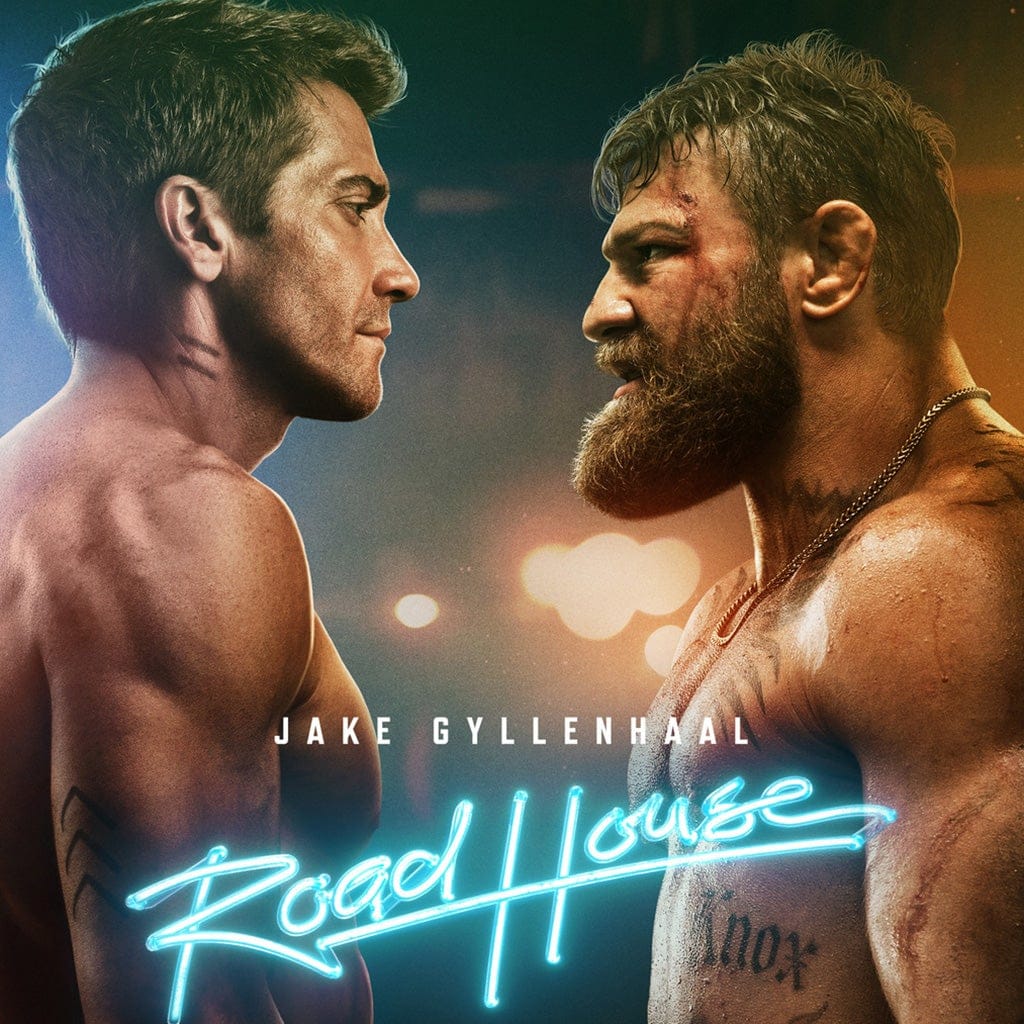Body-Shaming Travis Kelce (and Other Stories We're Told about Health and Technology)

Happy Friday! What's good?
Lots of "men's fitness" stories timed with the release of the Road House remake (which I watched this week, I'll admit. The first hour is okay, and I wasn't mad; didn't feel that Patrick Swayze's memory was being dishonored. But, damn, around the time that UFC star Connor McGregor appears, it all quickly goes downhill. That's not McGregor's fault, to be clear. He is trying so very hard to "act" – unlike Gyllenhaal, who doesn't really try at all, just sort of menaces with that broody Donnie Darko thing he still has going on. The scene where McGregor shows up is... something else, and from there the plot of Road House just sort of falls apart – is this a comedy? one wonders. And the CGI fighting is very, very, very, very bad. Watch the movie on your phone maybe, and you won't notice. Anyway...) These stories all claim to give you insight into Jake Gyllenhaal's UFC workout routine. How does the 40-something year old look so cut?! And I'm sure he did work hard in the gym. Actors do. They're paid to look a certain way. But I really wish more would be honest and just say "yeah, I also took performance-enhancing drugs, and truly that's why I am ripped."
In other efforts to encourage widespread body dysmorphia, I guess we're making fun of Travis Kelce now, who in his off-season, does not look like Jake Gyllenhaal on steroids. Shocking.
Elsewhere in sports-adjacent fantasy marketing: How many hot dogs do you think the average American eats per year? According to the hot dog industry, it's 70. I don't believe it. Neither does Kelsey McKinney who demands that "Big Hot Dog Must Tell The Truth."
Dispatches from the health and wellness technology sector: "The Race to Reinvent CPR" via The New York Times. "Dispatches from the Adderall Epidemic" in nine parts. Outside Magazine goes "Inside the Battle Over School Fitness Testing." "So, Should You Trust Andrew Huberman?" asks Slate. Honestly, I think we know the answer to that. "How We Got Concussions So Wrong" also via Slate. "Are Skin Patches the Next Big Wellness Innovation?" asks Athletech News, a publication that seems pretty willing to repeat any industry press release. Case in point: nothing says "flow state" like a wearable strapped to your head. According to a study conducted by Peloton, consumers think fitness technologies are good motivational tools. (Actually just 44% of respondents agreed that this was the case, with some significant differences between generations: 59% of GenZers versus just 22% of Boomers, but that's the headline that they're running with: these gadgets get you going.)
Speaking of grifters with a wellness-related hustle, it's time for another round of "phones are bad for kids" stories – timed, I guess, to mark the release of Jonathan Chait's vacuous new book The Anxious Generation. Wars. Genocide. Environmental destruction. Economic inequality. Looming fascism. But sure sure, kids and young adults are sad simply because of their phones.

Perhaps you've noticed an uptick lately in the number of stories about new gadgets that are going to "revolutionize" health care? (Maybe it's just me.) It seems that the tech press are all parroting Apple marketing with stories about the use of Apple Vision Pro in hospitals – very reminiscent of all the stories that were published about Google Glass. Remember Google Glass?
Recommended: "The Miseducation of Kara Swisher" in The Baffler. Edward Ongweso Jr. absolutely demolishes Swisher's Burn Book: A Tech Love Story,
a tortured and tortuous memoir that, in remixing swaths of past reporting and commentary, as well as regurgitating tales she’s told ad nauseam, tries to answer two burning questions: How did Silicon Valley end up in that room with Trump? And, more importantly, how did a tech journalist as good and uncompromising as Kara Swisher fail to anticipate this turn to the dark side?
The long and short of it is that Swisher is not a good journalist—or, framed more generously, that she thrived in an industry with remarkably low standards for which we are still paying the price. For decades, tech journalism and criticism has primarily consisted of glowing gadget reviews, laudatory profiles, and reprinted press releases, all of it colored by Silicon Valley’s self-aggrandizing vision of itself as a laboratory of a brighter future.
Oh snap. But phew, the number of people who try to revise their history of being sycophants for tech. We'll see it soon enough, I promise you, with people who are currently touting the incredible capabilities of ChatGPT and the like; who, in a month or twelve, will insist that they were skeptics all along. I agree with Ongweso: tech journalists like Swisher do bear some responsibility for the rise to power of Silicon Valley, with their fawning coverage of products and practices that have – surprise surprise – proven to be bad for democracy, the environment, and so on. But I think many more of us should have become more critical readers by now, right?
Related: The Verge is out with its take on the best printer for 2024.
Meanwhile, in sports and leisure news, The Guardian tells us "How birdwatching’s biggest record threw its online community into chaos." Via The Washington Post: "‘Ego-lifting’ cited as probable factor in exercise-related head injuries." "The M.T.A. Wants Marathon Runners to Pay Bridge Tolls, Too," The New York Times reports. Men's Health says that "Bo Jackson’s Workouts Have Changed Now That He’s a 'Senior Citizen'." Bo Jackson, for what it's worth, is 61. Despite legal threats from Kim Mulkey, The Washington Post published its profile of the LSU Women's Basketball coach. Controversy Transphobia in the world of darts after trans athlete Noe-Lynn Van Leuven's victory in a Dutch darts tournament.
I highly recommend this powerful video about cookbook author Julia Turshen – about her involvement with powerlifting and the queer barbell club she founded.
Thanks for reading Second Breakfast. Consider becoming a paid subscriber and funding my research into the stories that Silicon Valley is telling about the future of health gadgetry.





